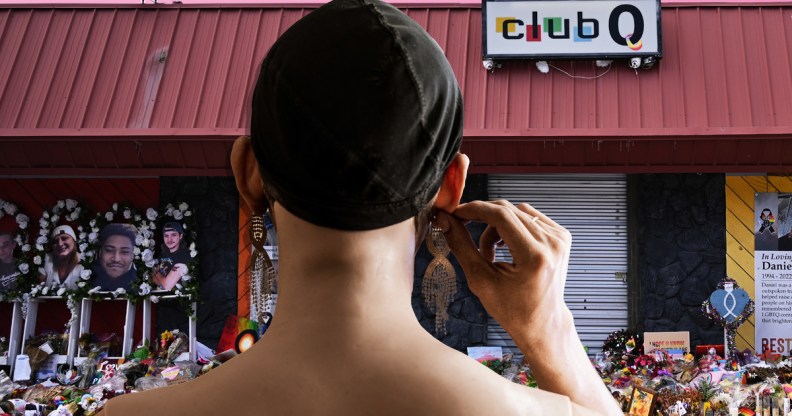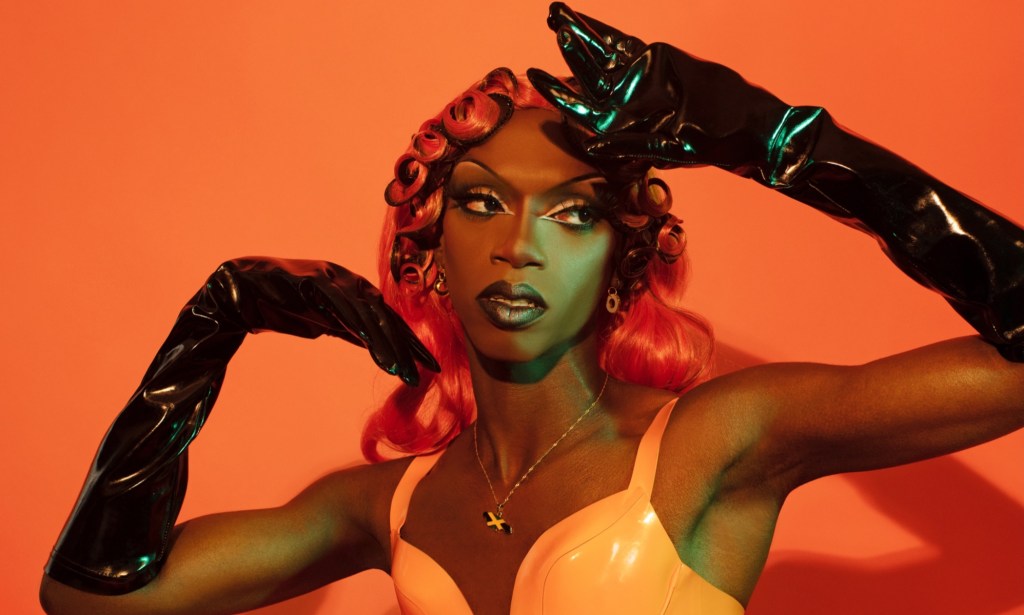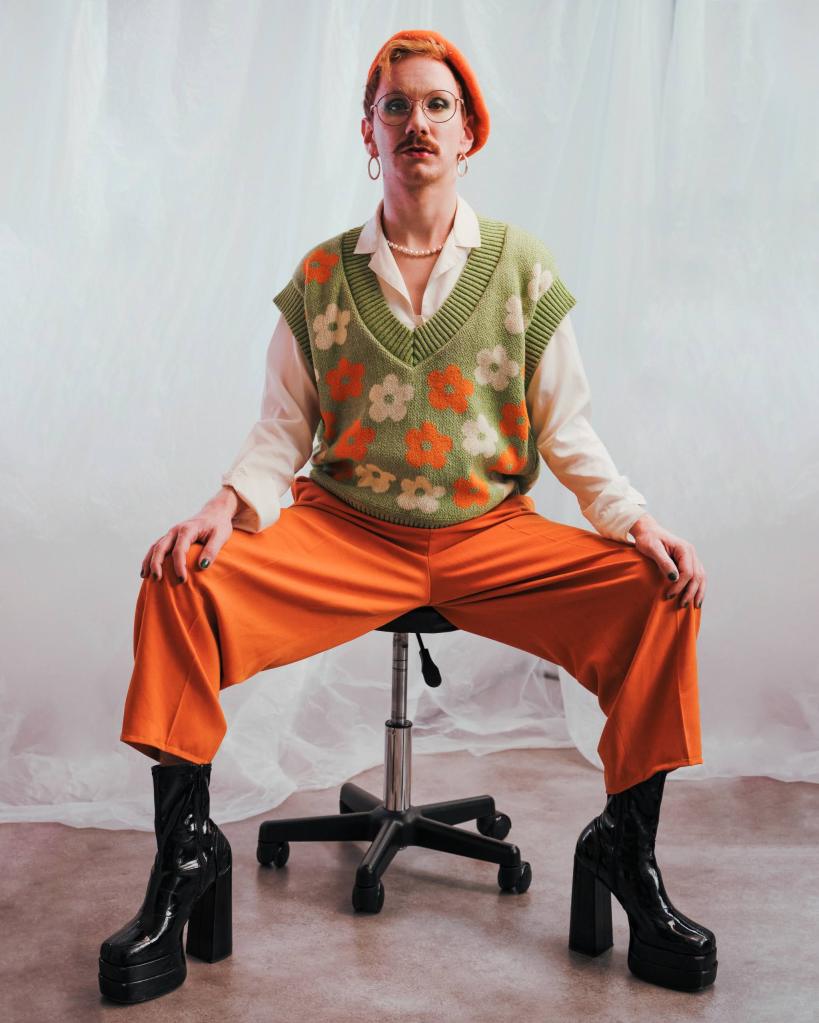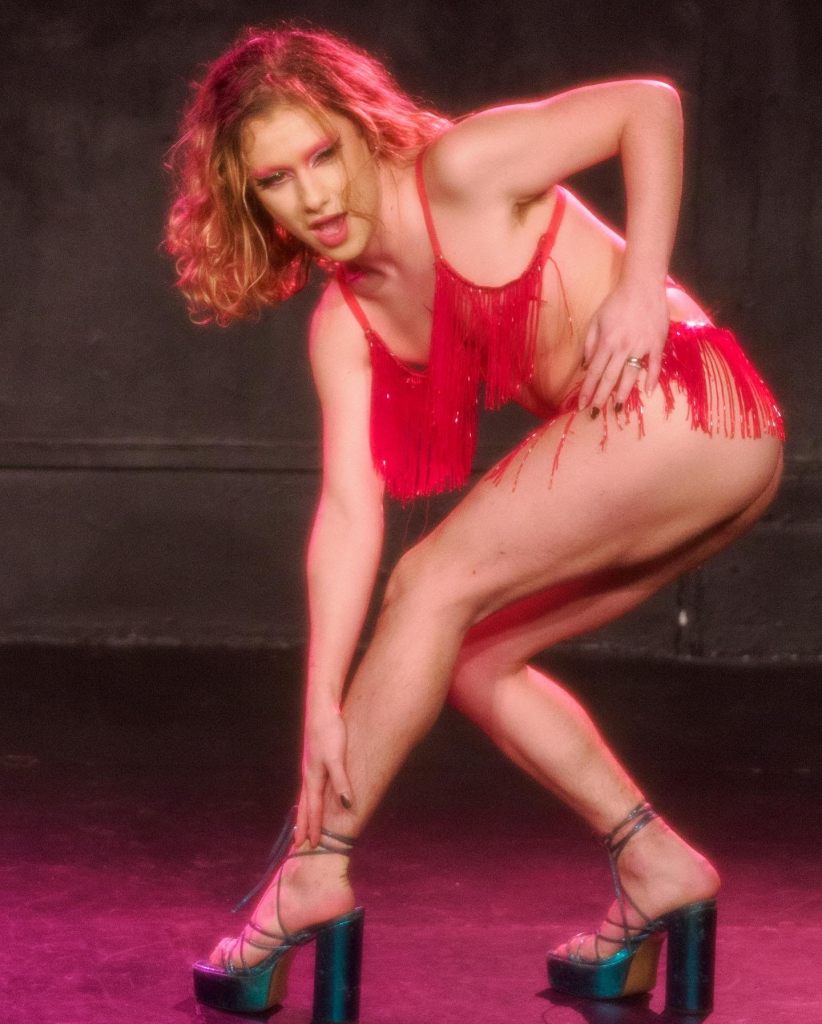‘Inside these walls they can be safe’: Why queer spaces are more vital than ever

Queer spaces allow drag performers to be safe and feel accepted. (Getty)
2022 saw queer spaces come under renewed attack, culminating in the horrific mass shooting at Club Q in Colorado Springs.
On 19 November, a gunman entered Club Q, a safe space for the LGBTQ+ community in Colorado, and killed five people, injuring dozens more.
Six years on from the Pulse nightclub shooting, the tragedy signified how little has changed, and how the wave of anti-LGBTQ+ rhetoric being peddled by politicians and pundits has real, deadly impact.
“A lot of people don’t realise as soon queer people step outside of our doors, we do not feel safe,” Drag Race UK finalist Black Peppa tells PinkNews.
“Something like this happening – it’s the worst news I can read.”

Black Peppa moved to Birmingham, England from Saint Martin in the Caribbean to escape a homophobic upbringing.
“When I came to England, I was not myself fully,” they continue, “I didn’t know what it was like to feel free and queer and liberated, going to bars and clubs is where I felt the best.”
Indeed for many, queer spaces are the only place LGBTQ+ people feel truly seen, accepted and safe to be themselves.
“These spaces exist as vital lifelines of community, safety and support,” says London-based drag performer Carrot.
“Out in our society, especially at the moment, visibly queer people are stared at and abused verbally – and sometimes even physically assaulted for just existing as our true selves.”
Rougie, resident drag queen at Bournemouth DYMK, adds: “These spaces allow people to be authentically themselves, for a few hours while inside these four walls they can forget about the prejudices that are just beyond the front door and be safe.”

But increasingly, that feeling of safety is becoming more and more fleeting.
In the US, rising anti-trans rhetoric has spilled over into attacks on drag events and queer spaces.
A recent study conducted by LGBTQ+ advocacy group GLAAD found a total of 142 attacks took place against US drag shows in 2022, with 20 happening in the past month.
There have been similar reports in the UK, too, with attacks on Drag Queen Story Hour events. It comes amid rising hate crime reports across the board, with numerous reports of people being targeted near queer venues.
It’s something that’s left many rattled, Carrot included.
“The rise in violent crime against our community is massively worrying, and I myself often don’t feel comfortable travelling to gigs on public transport alone in costume/makeup,” they say.
Violet Vogue, a queer spoken word artist in Manchester, adds: “It’s hard for me when I see hate crimes against nightclubs in America because that could also happen to us.
“We often forget that not everyone sees us as equal, some people would rather see us hurt.”
Queer venues won’t be beaten
The current climate has forced many queer venues to be even more mindful when it comes to matters of security.
Super Mary Hoe, who performs at London’s Dalston Superstore, admits: “The recent political climate made all of us more aware of safety and welfare in queer spaces.
“It has made a lot of venues hold more space for those parts of the community that are most affected.”

Another London queer space, Clapham Grand, is making sure diverse crowds are made to feel cared for, with “security briefed on pronouns” and gender-neutral toilets added to the mix.
But general manager Ally Wolf says that the “most important thing” the venue has done in the past six months is working with Safe Only, a not-for-profit, peer-led company providing queer security, welfare and nightlife services.
Its website explains: “We deserve to be looked out for by people who know what we need, who we are and what makes us thrive.”
“Not only is it having a huge benefit to our customers,” Wolf says, “it’s having a huge benefit to our existing team to give them the support and the training that’s needed.”
Many are keen to emphasise that while allies are “welcome” in queer spaces, they should be mindful – and follow through with their allyship.
For Super Mary Hoe, it’s simple: “Listen more, uplift marginalised people, echo their messages, show up to community events to support, donate, speak up against toxic and hateful opinions.
“Don’t just come to have fun with us, be on our side every single time.”
How did this story make you feel?

